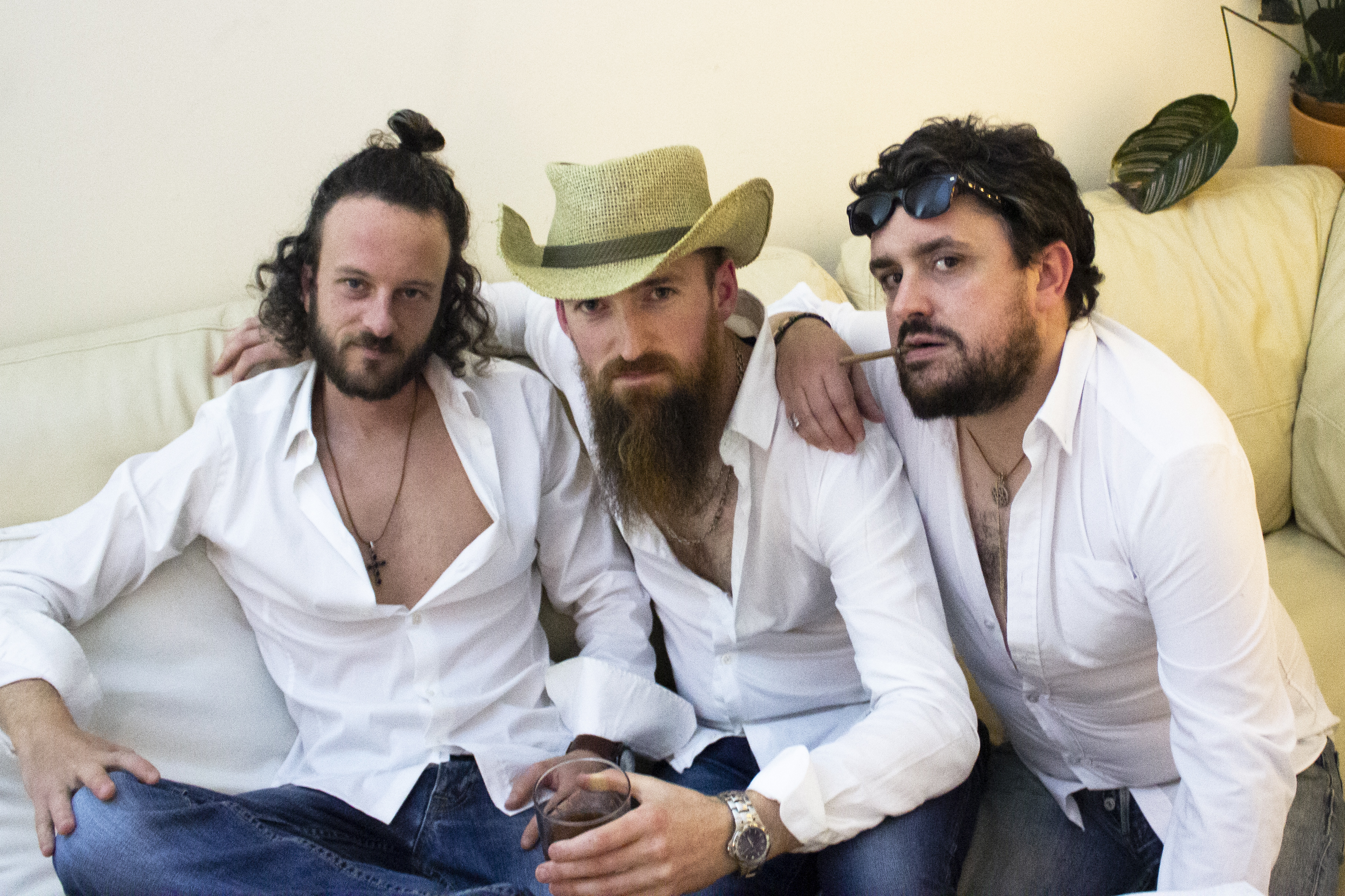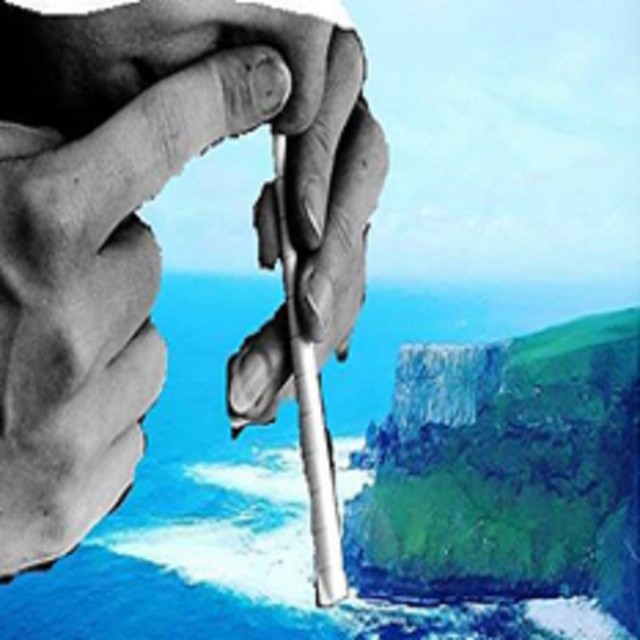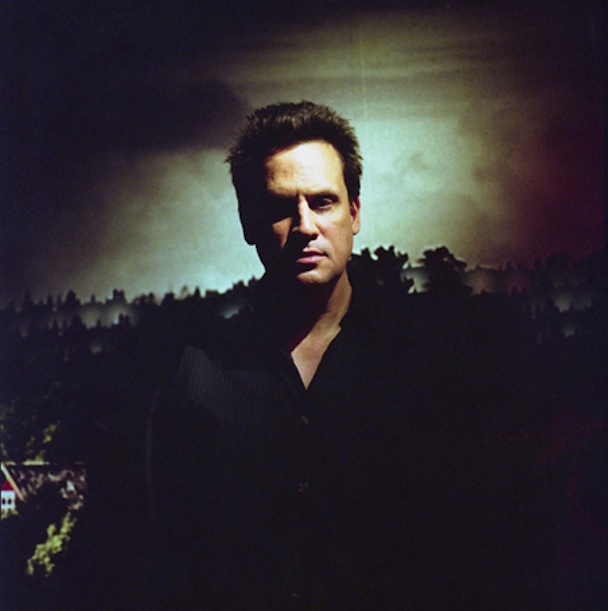We’ve premiered our fair share of albums here on The Thin Air, but – if truth be told – we’re struggling to recall one that we’ve loved so much, and so quickly, as Whole Heart by Dublin three-piece Jogging. The long-awaited follow-up to 2012’s Take Courage, it’s an emphatic (and rather heavier) ten-track return from Darren Craig, Gerard Mangan and Ronan Jackson.
Out today via one of the country’s finest imprints, Out On a Limb, the album was engineered and produced by John “Spud” Murphy and Ian Chestnutt at Guerrilla Sound Studios in Dublin at the start of the year.
To mark the release – which you can stream in full below – we sat down with the band to get the lowdown on their highly-anticipated recorded return after seven years.
Catch Jogging at the following shows over the next while:
Saturday, November 2nd: Pharmacia, Limerick (w/ Percolator & Olivia Furey)
Saturday, November 9th: Bello Bar, Dublin (w/ guests Grave Goods & Stupid Son)
Saturday, November 16th: Roisin Dubh, Galway (w/ guests Nerves
and Ornith)
Friday, November 22nd: The Roundy, Cork (Plugd Records presents)
Hi guys. Whole Heart is a whole seven years in the making. Does it feel that long?
Ronan: Yes! Yes, it does! Well, to be honest, it is only three years in the making. Between 2013 and 2015 I was mostly working on my other band Women’s Christmas. Then the original Jogging drummer Peter left the band in 2015 so we had 2 years of searching for the right replacement. Ger joined on drums in November 2016 and we started writing it pretty much straight away. He never even learned any older Jogging songs. It was sort of like the start of a new band. It was still very obviously Jogging though, in the format and the formulas.
Since the release of Take Courage, how do you feel you have sonically (and even conceptually) evolved in the interim?
Ronan: Sonically, it feels a bit heavier I think. We also left behind some of the overly-complex song structures. We tried to get to the “root” of what the song was, moreso. More attention to detail rather than looking for attention. Conceptually, I think it’s a bit more outward-looking than the last two albums. Looking back now the lyrics on those albums seem a bit self-obsessed. Now I feel a bit more like an inconsequential dot.
I’m confident that this might be your strongest LP to date. Was it important for you to wait a while longer until everything was just right?
Ronan: Thanks! While I’d love to say the wait was a well-considered and carefully sculpted one, it was really more of a logistical thing. I think about 6 months after Ger joined the band we had enough material for an album, but we took a few long breaks for family reasons. That said, the longer wait allowed us a lot of time to whittle down to the perfect 10 songs for this album. We had about 40 songs at one stage, then cut it down to 17, then settled on the best 13 and eventually cut another 3 to make it an even 10
It was recorded by Spud and Ian at Guerrilla Sound Studios. I was in the studio at the weekend and the rooms felt really conducive to spending long hours getting things right, at your own pace. How was the experience working alongside them on this?
t was really great working with Spud and Ian, they are a well-oiled machine. Constantly trying new things and easily approachable when we wanted to try something different. They’ve recorded some great records in that studio, Percolator (their own project) Katie Kim, The Jimmy Cake, Lankum and more. Spud is a man in demand at the moment with all his work with Lankum so we were lucky to find a window to work with him. It’s also great to have a fellow gear nerd like Ian, aka Guerrilla Devices, on hand who has a bunch of cool hand-built amps and effects to tinker around with when trying to get the perfect sound.
It goes without saying that you sound very revitalised as a band. What do you owe that to?
Ronan: This is going to sound slightly corny, but I think because we get to do this less we give it more. In previous years, we would be practicing 2 or 3 times a week and playing 5 or 6 shows a week. Now we all have to travel for hours in the middle of the night zigzagging the country just to make a practice happen, so once we get in the room there is very little idle chatter or wasted time. It’s less about being part of a social scene now so you start to realise that it is a deeper vocation. That was one of the reasons the album is called Whole Heart. There was just no reason for us to do a thirrd album unless we were going to put our whole hearts into it. If the time is limited you truly have to make the most of it.
There’s an urgency to the album that seems to reflect the overall lyrical mood of the album. What’s informing that restlessness and determination to make a statement here?
Ronan: It was actually something I wrestled with quite a bit. I think I’ve always kind of sneered somewhat at the idea of being an overtly political band, I hate the idea of being preachy, especially when you are effectively preaching to the choir a lot of time realistically. There can be a sort of smug self-celebration in it.
But it felt sort of irresponsible to ignore the state of the nation when it came to writing a lot of lyrics for this one, simply because it is encroaching on every aspect of you and your friends’ every-day lives and your mental health, especially given all the stress caused by the current housing crisis. Songs like ‘Wall Of Salt’ and ‘Loggerheads’ reflect this a bit more
The LP is, of course, released via the mighty Out On A Limb records. Now, more than ever, it’s crucial to support indie imprints such as OOAL. Was opting for them again a no-brainer?
Darren: Out on Limb have been wonderful, there certainly wouldn’t be a physical LP for this release if it wasn’t for them. They put in so much work behind the scenes, that we can’t thank them enough. It’s sad that there aren’t many independent record labels left. While there is a huge DIY culture in music these days it tends to be artists doing it on their own. It’s rare to have a collective that will get behind someone and do the donkey work, to make sure your record is heard. We’re very lucky to have them.
The musical landscape in Dublin has shifted so much since your last album. Who are the acts there that, for you, are actually pushing forward and worthy of being lauded on the world stage?
Darren: The landscape certainly has shifted but it’s good to see it evolve. The style queues have changed. Where once having a frontman seemed like the wrong move it’s certainly en vogue, and very powerfully so, for acts like Girl Band, Fontaines DC & The Murder Capital. There are also a lot more coordinated shirts.
But for me, the local acts (not exclusively Dublin), that I would champion include Grave Goods, The Claque, The Altered Hours, Junior Brother, Percolator & Blue Whale. They’re all doing their own thing and to a very high standard. It’s also great to have our old friends Bats release another killer record around the same time as us, they should just take over the world.
Though you’ve been active on the live front, something tells me the launch of the album at Bello on November 9 is going to be a bit special. How much does it mean to you to finally be getting your third and arguably best album out into the world?
Darren: The launch night is a very exciting time. All songs fully complete and ready to be unleashed into the world. It’s also a release from the process, 3 years of fine-tuning, late-night writing sessions, mulling over artwork, critiquing mixes and masters, ridiculous band photo shoots, collaborating with engineers and artists. It’s going to be a celebration of all the hard work and a time to let loose. We’re very lucky to have two excellent supports in Grave Goods and Stupid Son, all for only €10, sure you may as well buy a record while you’re there.






